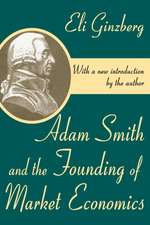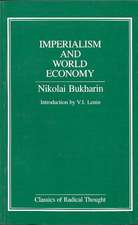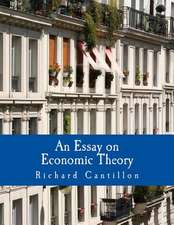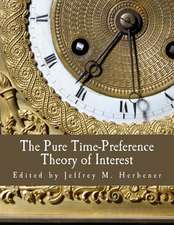The Darwin Economy – Liberty, Competition, and the Common Good
Autor Robert H. Franken Limba Engleză Paperback – 24 sep 2012
"The Darwin Economy debunks popular nostrums of both left and right, and takes particular aim at the notion that a well-functioning competitive market system will necessarily produce socially optimal results. Frank suggests novel approaches to America's problems that go well beyond the tired ideas of the present debate."--Francis Fukuyama, author of The Origins of Political Order
"Competition often serves the parts better than the whole. This is true for both species evolution and human society. Only a fool would count on the invisible hand. In his usual clearheaded and lively style, Robert Frank explains how Charles Darwin thought more deeply about these issues than most contemporary economists."--Frans de Waal, author of The Age of Empathy and Our Inner Ape
"Pointing to new ways of thinking about collective action and taxation, Robert Frank has given us a book that is as important as it is timely."--Dan Ariely, author of Predictably Irrational
"The Darwin Economy's message is in my view the only hope for a rational economic future."--William J. Baumol, past president, American Economic Association
"This lucid, deeply engaging book provides the perfect antidote to the mindless sloganeering that dominates our current discussions about the role of government in a free society."--Dani Rodrik, author of The Globalization Paradox
"Robert Frank convincingly predicts that Darwin will eventually be recognized as the true intellectual father of economics. After you read The Darwin Economy, you'll want this prediction to come true as soon as possible."--David Sloan Wilson, author of Evolution for Everyone: How Darwin's Theory Can Change the Way We Think About Our Lives
"Pondering the implications of Darwinian theory, and rejecting the received wisdom of libertarian and left-wing pundits alike, Robert Frank convincingly lays out economic policies that will benefit the rich, the poor, and the broader society."--Howard Gardner, author of Truth, Beauty, and Goodness Reframed
"Human beings cooperate. Markets help. That's Adam Smith. Human beings also compete: not just for resources, but for relative position in the mating game. That's Darwin. Add Darwin to Adam Smith, and you get Robert Frank, and a book full of dazzling insight."--Mark Kleiman, author of When Brute Force Fails
"Robert Frank is a national treasure in our discussions about public policy. He shows here that our understanding of economics needs to be informed more by a sophisticated interpretation of Charles Darwin than by a simplistic view of Adam Smith. Given the state of our politics, this latest dose of Frank advice deserves to be widely read."--Robert D. Putnam, author of Bowling Alone and American Grace
Preț: 91.73 lei
Nou
Puncte Express: 138
Preț estimativ în valută:
17.55€ • 18.33$ • 14.53£
17.55€ • 18.33$ • 14.53£
Carte disponibilă
Livrare economică 14-28 martie
Preluare comenzi: 021 569.72.76
Specificații
ISBN-13: 9780691156682
ISBN-10: 0691156689
Pagini: 264
Ilustrații: 1 table
Dimensiuni: 139 x 215 x 18 mm
Greutate: 0.25 kg
Editura: Princeton University Press
Locul publicării:Princeton, United States
ISBN-10: 0691156689
Pagini: 264
Ilustrații: 1 table
Dimensiuni: 139 x 215 x 18 mm
Greutate: 0.25 kg
Editura: Princeton University Press
Locul publicării:Princeton, United States
Descriere
The premise of economist Adam Smith's 'invisible hand'--a tenet of market economics--is that competitive self-interest shunts benefits to the community. But that is the exception rather than the rule, argues writer Robert H. Frank. Charles Darwin's idea of natural selection is a more accurate reflection of how economic competition works . . . because individual and species benefits do not always coincide. Highlighting reasons for market failure and the need to cut waste, Frank argues that we can domesticate our wild economy by taxing higher-end spending and harmful industrial emissions.



















